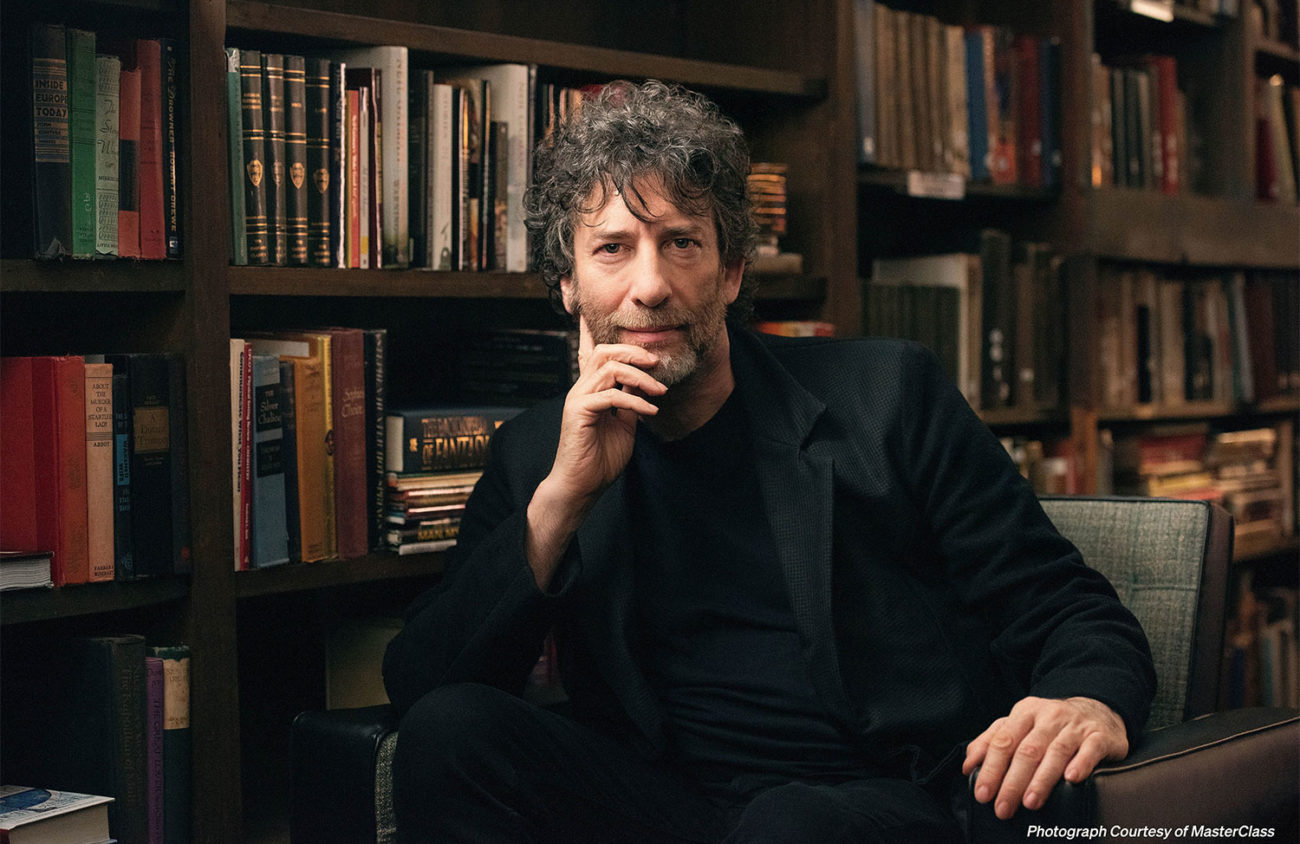What scares one of our most popular mythmakers and weavers of fear? Speaking in front of an audience. At least that was the case when English author, graphic novel writer, screenwriter and showrunner Neil Gaiman undertook his first speaking tour in 1993.
These days, though, Gaiman’s over his stage fright, he tells Eugene Weekly over the phone. The writer’s current tour stops by Eugene Monday, May 2, at the Hult Center.
On his decision to come out from behind a computer screen to appear in public, the author of several modern classic science fiction and fantasy novels mentions another English writer, Charles Dickens — who went on speaker tours in the U.S. in the 19th century.
And although Dickens was far more grounded in gritty realism — with occasional forays into magical realism — there’s a clear throughline from Dickens to Gaiman in the grotesque, absurd and mundane aspects of everyday English life.
Some well-known works by Gaiman include American Gods, Anansi Boys and Good Omens -— with the second season of Amazon Prime’s TV adaption of Good Omens now in post-production. Gaiman also writes young adult books such as Coraline, adapted in 2009 as an animated feature with production design from LAIKA Digital Design Group, based in Portland. He’s also penned a number of hit graphic novels, including The Sandman.
What readers — as well as an increasing number of viewers, as more of his work gets adapted for film and TV — seem to love about Gaiman is his willingness to offer genuine fright and not talk down to children or teenagers. There’s also a dark sense of humor, English charm and well-crafted stories that draw from folktales and mythology. Listing what’s best about Gaiman’s work is a folly, because somebody, somewhere will disagree, which is just the loyalty Gaiman tends to inspire.
While on tour, Gaiman likens the process by which he plans what to read on stage to a musician planning a set list.
“Right now, it’s lovely, there’s not anything that I’m bored of reading,” he says. “There are short stories, poems, Norse mythology, there’s all sorts of things: What do I feel like doing? What’s fun? What did I do last night that might be interesting to do in a slightly different way?”
What’s most fun of all are the audience questions, though. At this point, Gaiman admits his most fanatical followers sometimes have better recall of his body of work than even he does. That’s why he now asks his audience to submit questions in writing as they enter the theater. He then can choose not only what he can answer but which questions might have the broadest appeal.
Still, Gaiman says, “I’ve literally tripped over as I’m about to go on stage” and dropped all the question cards in the dark.
And how does a franchise maker like Gaiman feel about the dominance of franchises like Marvel movies, Star Wars and Batman in popular culture?
“What I’d hate to see is for it to be difficult for young writers and creators to get things made” because everything must spin off from a franchise, Gaiman says. But why not let an audience have their own Batman every decade or so? That said, Gaiman says that while it’s also good to let franchises end, it’s also good “to re-invent them.”
Neil Gaiman appears 7:30 pm Monday, May 2, at the Hult Center; tickets from $20, all ages.
